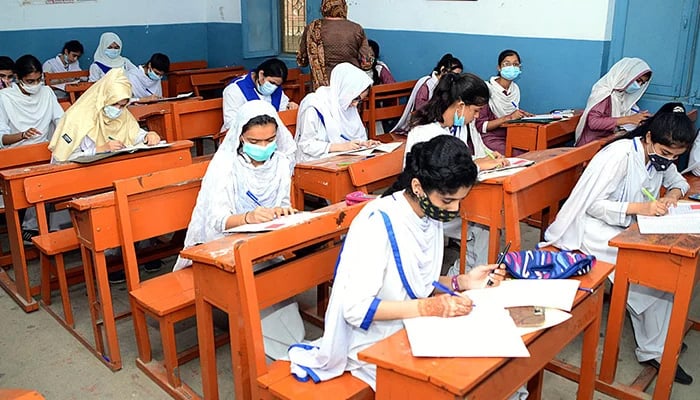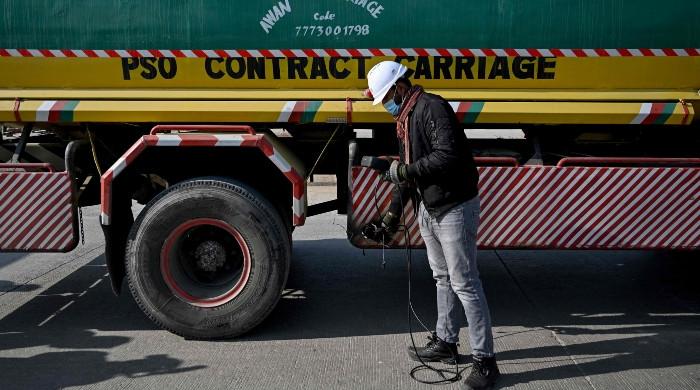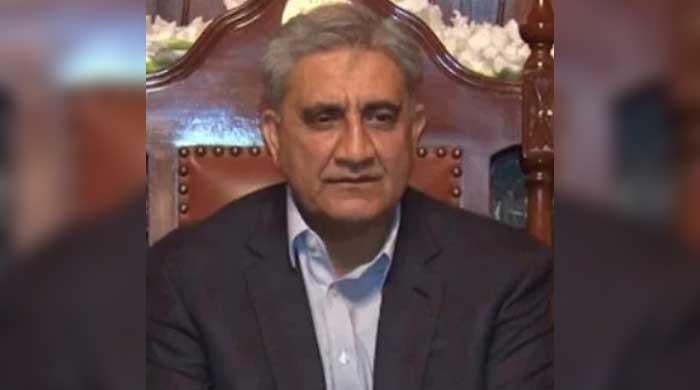Misplaced priorities: $75m external funding fails to uplift Sindh's education system
Sindh signed loan agreement with Asian Development Bank in 2020 to upgrade secondary education board
September 22, 2024

- ADB funded construction of 160 new educational blocks in Sindh.
- SSEIP project includes training of teachers in science subjects.
- Automated grading system via OMR, e-checking tech among targets.
Despite securing $75 million in external funding to enhance the quality of secondary education, no effective mechanism has been established in Sindh, Geo News reproted on Sunday.
Pakistan has failed to produce extraordinary talent not because the students in Pakistan have no intellect to meet the pace of the world but because of the educational structure that is responsible for numbing their creativity.
By that, it means, the manual grading system that exploits the brilliant mind and favours one who holds money and power. This process is questionable from the very beginning.
From cheating scandals in secondary board exams to no transparency in marking, it makes room for corruption, bribing and whatnot.
To upgrade the secondary board system, the Sindh government signed a loan contract with the Asian Development Bank in 2020 under the Sindh Secondary Education Improvement Project (SSEIP).
The $75 million loan was aimed at three targets. One was to build 160 new educational blocks in Sindh, the second was to train teachers in science subjects and the third was to transform the manual grading system to an automated grading system by using Optical Marking Recognition (OMR) machines and E-checking technology. The reason was to minimise human intervention as much as possible.
However, it never happened.
On the contrary, the amount that was spent on either salaries or operation costs for its implementation unit (PIU).
To investigate, Geo News looked into the documents that ADB uploaded on their website and according to their procurement report's D section of Complete List of Contracts. They mention that cost was spent on the following:
- $92,225 spent on three vehicles
- $9931 spent on ACs
- $26,371 spent for fixture and repair of furniture
- $15,182 spent on power generators
In a briefing session to stakeholders by the Sindh government in June 2023, they claimed that their procurement has been completed for OMR, however, the contract of OMR machines is still active and incomplete.
The provincial government also claimed that they completed the disbursement of lab equipment to 400 schools including 100 schools of Sindh Education Foundation (SEF), however, the procurement report only mentions the disbursement of lab equipment to 100 SEF schools.
- According to their physical progress report:
- A website has been designed
- Two firms were hired for construction and design
- A contract has been signed for teacher's training and assessment & installation of OMR machines with a joint venture of 3 companies.
- Permission to Construct of 120 out 160 building blocks granted
- Consultancy staff was hired
According to the budget 2024-25, the total estimated expenditure on SSEIP is Rs225 million which is nothing.
Geo News approached former member of the provincial assembly Rabia Nizami who was a member of the Steering Committee of Education and she wrote an open letter to ADB on her reservations about the project.
"This project was supposed to transform the whole ecosystem of the secondary grading system but it's on a halt because it is not the priority of the Sindh government,” said Nizami.
"OMR Machines can't do anything if they don't change the whole structure. The Sindh government doesn't want educational transformation,", she told Geo News. Rabia believes that due to its slow pace corrupt elements are ripping their fruits.
"OMR machines have been bought and distributed to all the boards across the province," said Sindh Minister for Boards and Universities Mohammad Ali Malkani.
"From next year we will be implementing an automated grading system and OMR sheets in Sindh," he added. To question why there is a delay in the project, he replied that it is the domain of the Ministry of Education and Literacy.
Speaking to Geo News, Institute of Cost and Management Accountants of Pakistan's (ICMA) former president Hasan Bilgrami criticised: "The education in Sindh has no sanctity left. The input has no quality because of the current educational structure. "
"Recently, it was bizarre to witness that the Karachi board has reduced the percentage of Second Year students without explanation. This sums up our education system."
Sindh Professors and Lecturer Association (SPLA) former president Feroz-Uddin Ahmed told Geo News: "The [SSEIP] project has been in full swing after 2022, and it's in the second phase now. AKU and Zia-uddin board have an e-marking system but I wish to see it across the Sindh."
"OMR or e-marking would be fruitful for the future of students across Sindh and it would definitely help in advancing the education," he added.
In Pakistan, if we look into the education rankings, Sindh is one the lowest. District Index report of the Planning and Commission department released its annual report which shows several districts of Sindh ranking lowest in major indicators like infrastructure etc. Malkani's district Sujawal is among those districts.









